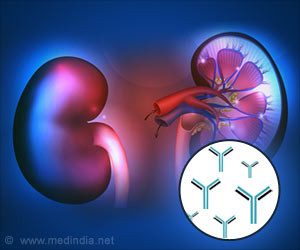Researchers wanted to develop strategies that can combat the metabolic defect seen in immune cell dysfunction and resistance to immune cell blockers of rheumatoid arthritis patients.

‘Immune cells from rheumatoid arthritis patients who have low levels of a specific amino acid lead to cellular miscommunication, but supplying it may provide a new therapeutic strategy for autoimmune disease.’





"For the last 25 years, tumor necrosis factor has been an important therapeutic target to treat autoimmune disease and tissue inflammation," says Cornelia Weyand, M.D., Ph.D., a Mayo Clinic immunologist and rheumatologist.The introduction of tumor necrosis factor-inhibitors was a paradigm shift for the management of the inflammatory disease.
Though they block the action of TNF in the inflamed tissue site, they cannot prevent its production. Therefore, they cannot treat the root cause of the disease.
Based on data collected over more than 20 years of work, researchers began to investigate helper T cells. T cells coordinate the immune response, but they also can remain in the body after infection to help the immune system respond more quickly should the invader return.
"Unfortunately, these T cells can also memorize their own mistakes, and in patients with rheumatoid arthritis, they lead the attack against the joints," says Dr. Weyand.
Advertisement
The observations made in T cells from rheumatoid arthritis patients have low-performing mitochondria, and by screening the cells they found that the rheumatoid arthritis T cells lack the amino acid aspartate.
To compensate for this, the endoplasmic reticulum begins to expand and overproduce proteins, one of which is the tumor necrosis factor. This shows that TNF hyperproduction is a result of a metabolic defect.
Equipped with this knowledge, researchers hope to develop new therapeutic strategies to combat excess TNF.
This will be of great importance because many become resistant to standard TNF blockers. Of equal importance is the recognition that metabolic defects within cells can lead to disease.
Source-Medindia















